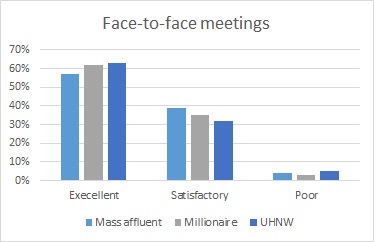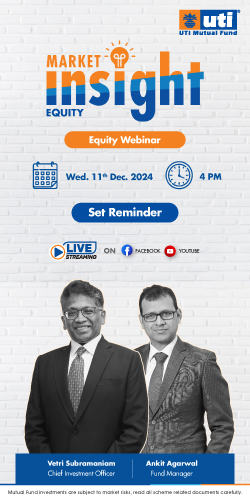63% of ultra-high net worth individual clients describe the content of advisor meetings as excellent while newsletters and blogs were both rated especially low, reveals a Spectrum Group (a consulting & market research firm based in US) and Vanguard survey.
The survey which captured the views of 1,500 mass affluent, 1,000 millionaire and 500 ultra-high net worth households in 2014 based in US shows that many clients expect more from the content of advisor communications.
 Blogs
Blogs
Almost 50% of mass affluent, millionaire and UNHW clients rated the blog content of advisors as poor. To improve blog content, the report suggests that you should stick to a schedule to ensure you post consistently. Also, you should put videos, graphics and links in your blog and invite guest bloggers to contribute on your blog. Click here to read more on how to improve the quality of your blogs.
 Newsletters
Newsletters
Almost 70% of clients (mass affluent, millionaire and UHNW) rated the newsletter content as satisfactory. This means that advisors need to improve the quality of their newsletters. The report suggests that you should send newsletters at regular intervals which will help you set expectations and build a following. Also, you can improve your newsletter by using infographics or putting content in a Q&A format.
Face-to-face meetings
As compared to newsletters and blogs, clients found face-to-face meetings more fruitful. Close to 60% clients (mass affluent, millionaire and UHNW) rated the content/discussion in face-to-meetings as excellent. To further improve these meetings, the report says, “Be in a continual mode of discovery. Ask discovery questions not only in your initial meeting but also in every subsequent client interaction. Try starting every conversation with one discovery question. Be specific if possible, asking for an update on a  particular topic, or simply probe for new information: What’s new since we last spoke?”
particular topic, or simply probe for new information: What’s new since we last spoke?”
Also, you should listen more; talk less. This is simple but effective. “Your clients may want to talk about investments, or they may not. Try to have well-rounded discussions and be open to client cues about what topics are most important to them,” suggests the report.





